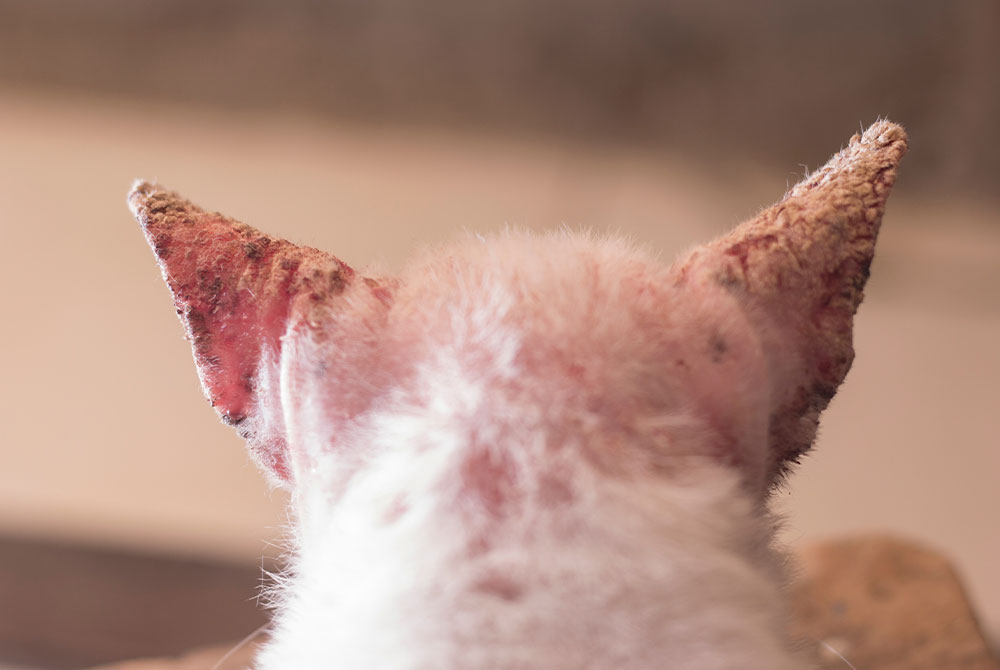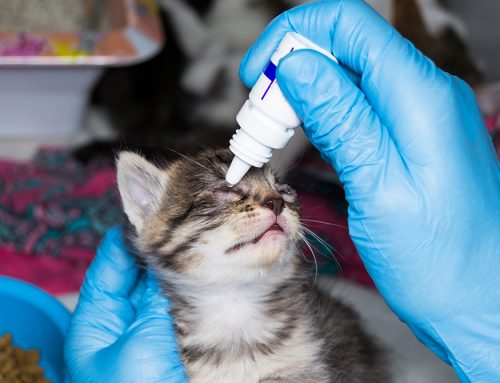At Mission Veterinary Clinic, we understand how uncomfortable and distressing allergic skin diseases can be for your pets. Allergic skin diseases are one of the most common issues seen in dogs and cats, and they can cause symptoms ranging from mild itching to severe skin infections. Our goal is to provide your pet with the best possible care to alleviate their discomfort and improve their quality of life.
What is Allergic Skin Disease?
Allergic skin disease in pets is caused by a hypersensitive reaction of the immune system to various allergens, which may include:
- Environmental allergens: Pollen, dust mites, mold, grass, and other substances commonly found in the environment.
- Food allergens: Certain proteins in your pet’s diet may trigger an allergic reaction.
- Flea allergy dermatitis: An allergic reaction to flea bites, even from just one or two fleas.
- Contact allergens: Substances like shampoos, chemicals, or certain types of bedding.
Common Symptoms
Symptoms of allergic skin disease can vary depending on the cause and severity of the allergy. Common signs to look out for include:
- Persistent itching, scratching, or licking
- Red, inflamed skin
- Hair loss or bald patches
- Scabs, sores, or hot spots
- Ear infections
- Skin infections
Diagnosis
Accurate diagnosis is essential for effective treatment. Our veterinary team will conduct a thorough examination of your pet, which may include:
- Detailed history: We will ask about your pet’s symptoms, diet, environment, and exposure to potential allergens.
- Skin tests: Intradermal skin testing or blood tests may be performed to identify specific environmental allergens.
- Elimination diet trial: To determine if food allergies are the cause, we may recommend a special hypoallergenic diet for a period of time.
- Flea control assessment: If fleas are suspected, we will assess your pet’s flea control program and recommend any necessary changes.
Treatment Options
Treatment for allergic skin disease varies depending on the type and severity of the allergy. Our approach is customized to your pet’s specific needs and may include:
- Medications:
- Antihistamines or corticosteroids: To reduce itching and inflammation.
- Antibiotics or antifungals: If secondary skin infections are present.
- Immunotherapy: Allergy shots or oral drops to desensitize your pet to specific allergens.
- Flea Control:
- We will develop a comprehensive flea control plan that includes both your pet and their environment.
- Dietary Management:
- If a food allergy is diagnosed, we will recommend a hypoallergenic diet tailored to your pet’s needs.
- Topical Treatments:
- Medicated shampoos, conditioners, and sprays to soothe and protect your pet’s skin.
- Environmental Management:
- Advice on reducing exposure to known allergens in your pet’s environment.
Long-Term Management
Allergic skin disease is often a chronic condition, requiring ongoing management. Our veterinary team will work closely with you to monitor your pet’s condition and adjust the treatment plan as needed. Regular check-ups are essential to ensure your pet remains comfortable and healthy.
When to Seek Veterinary Care
If your pet shows signs of allergic skin disease, it’s important to seek veterinary care as soon as possible. Early intervention can prevent the condition from worsening and improve your pet’s quality of life.
At Mission Veterinary Clinic, we are committed to providing compassionate, expert care for pets suffering from allergic skin diseases. If you have any questions or concerns, or if your pet is experiencing symptoms, please don’t hesitate to contact us at 818-363-8143 or visit us at our location.
Mission Veterinary Clinic
16915 San Fernando Mission Blvd, Granada Hills, CA 91344
Phone: 818-363-8143
Website: missionvet.com
Email: missionveterinaryclinic@gmail.com










Leave A Comment